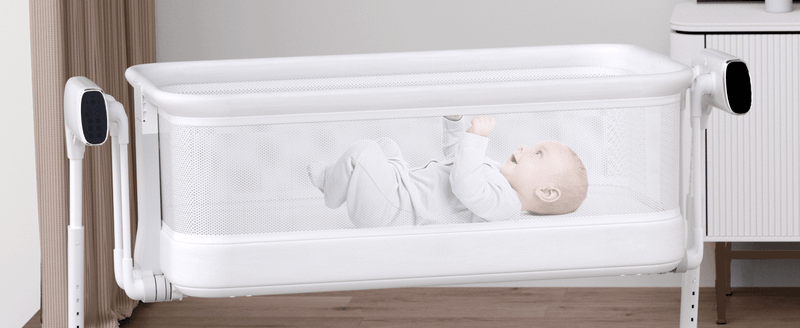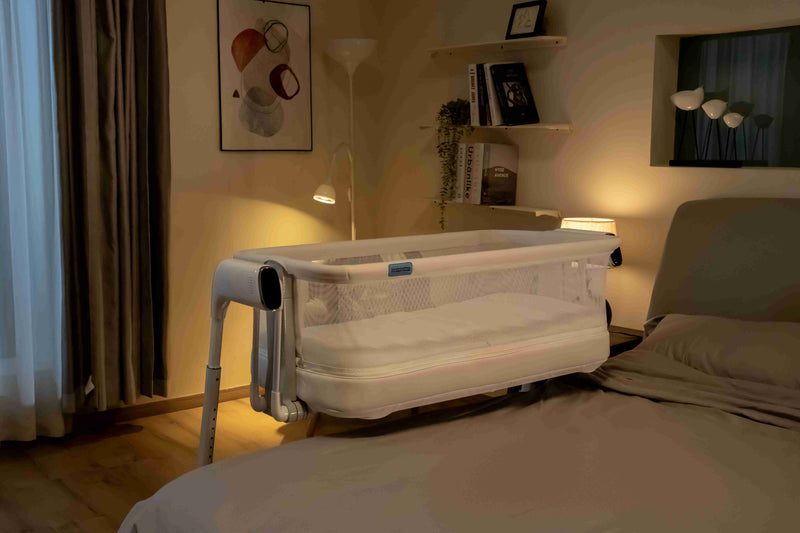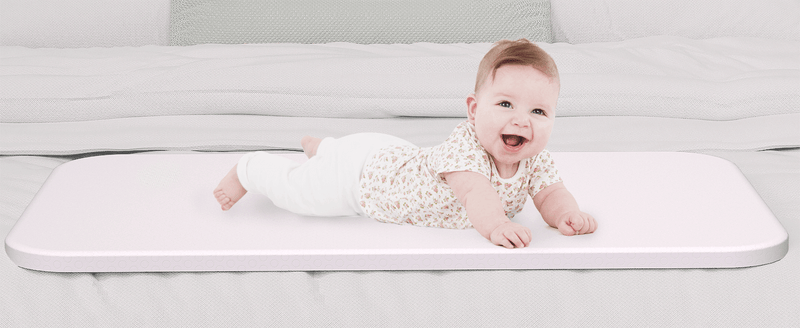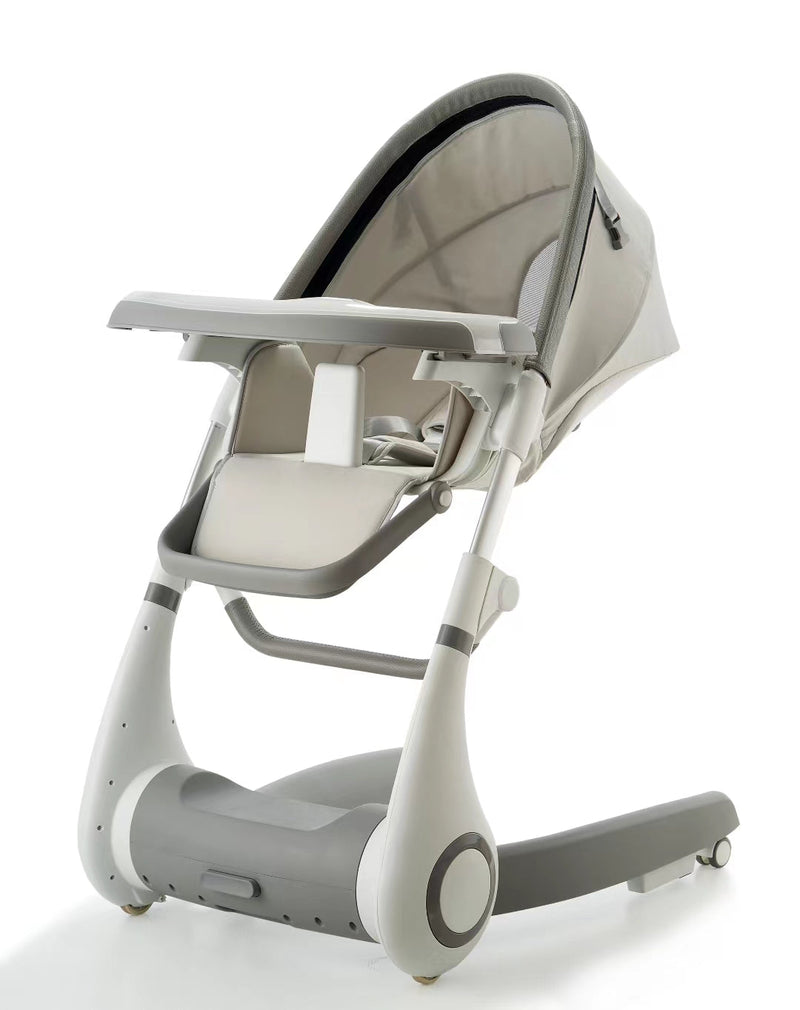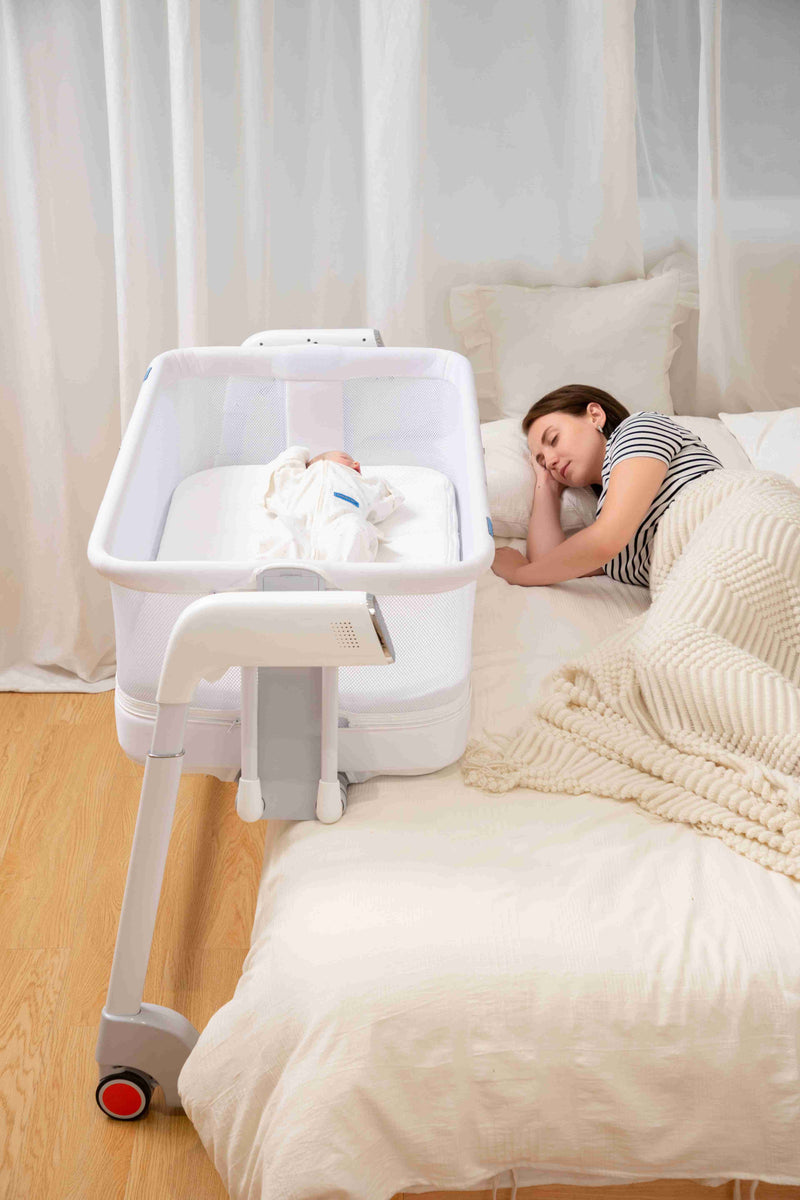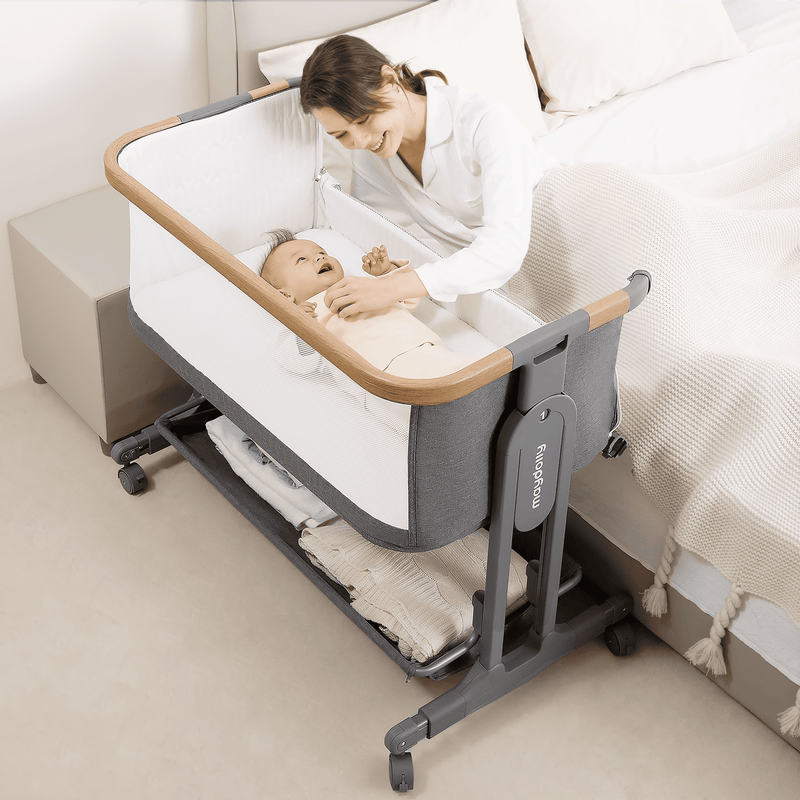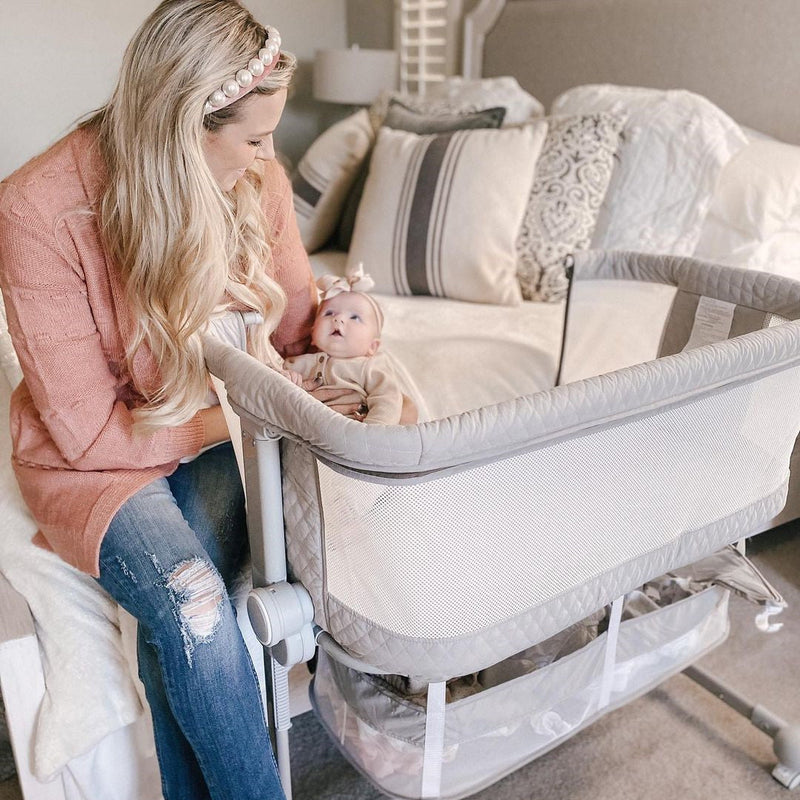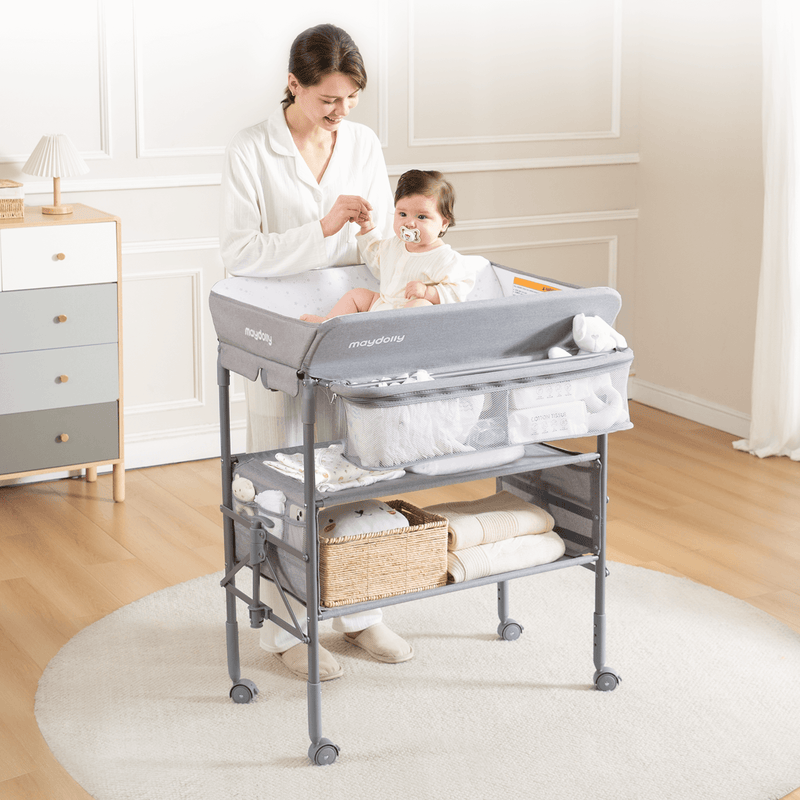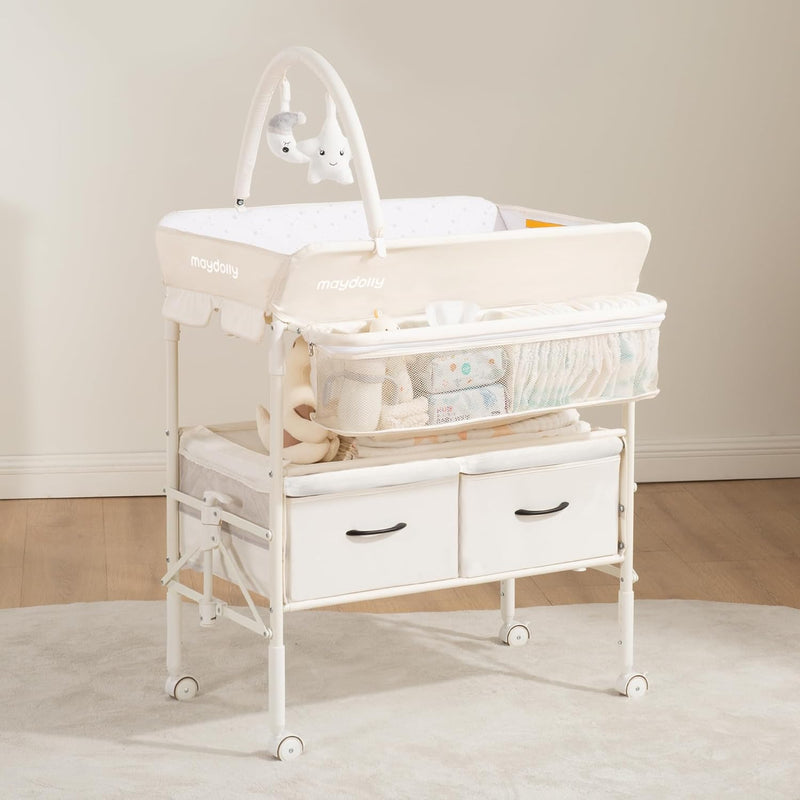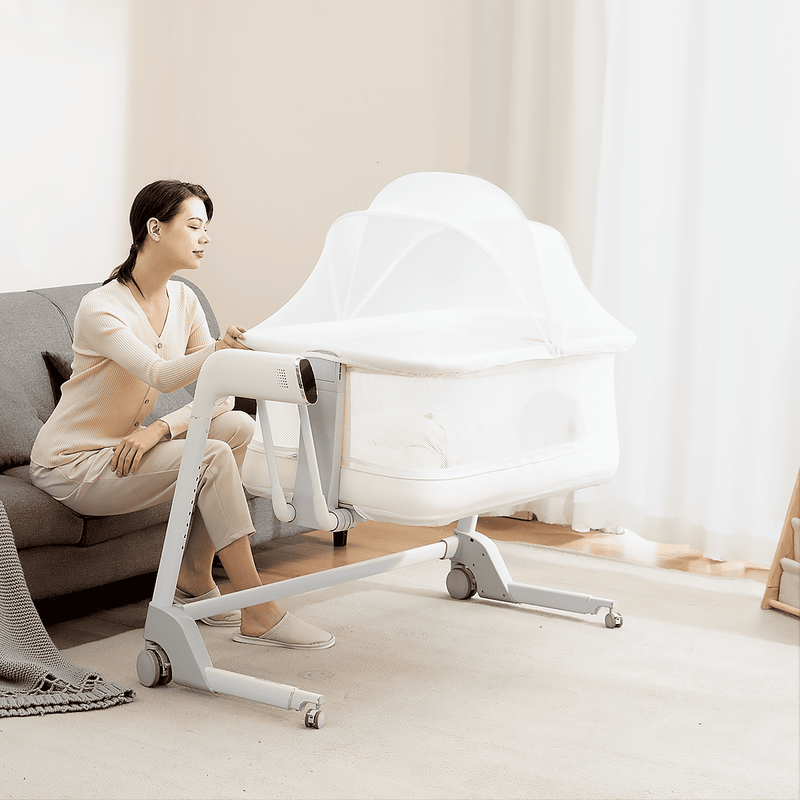The Dream of Uninterrupted Sleep
Every new parent dreams of the night when their baby finally sleeps soundly until morning. The truth is, “sleeping through the night” doesn’t happen all at once—and it means something different than you might think.
For adults, it might mean eight uninterrupted hours. For babies, it usually means a single 6–8 hour stretch of continuous sleep without needing a feed. Understanding when—and how—this milestone happens will help you set realistic expectations and create healthy sleep habits for your little one.
What “Sleeping Through the Night” Really Means
In the world of baby sleep, sleeping through the night typically refers to:
-
Sleeping 6–8 hours straight, without waking for a feeding
-
Falling back asleep independently if they do wake briefly
-
Stable sleep cycles between light and deep sleep
💡 It’s completely normal for babies to wake several times per night—even after they “sleep through.” The difference is they learn to self-soothe and drift back off without crying.
When Do Babies Start Sleeping Longer?
| Baby’s Age | Typical Longest Sleep Stretch | Night Feeding Frequency | Notes |
|---|---|---|---|
| 0–2 months | 2–4 hours | Every 2–3 hours | Newborns need frequent feeds |
| 3–4 months | 4–6 hours | 1–2 night feeds | Start consolidating sleep cycles |
| 5–6 months | 6–8 hours | 0–1 night feeds | Some babies begin “sleeping through” |
| 7–9 months | 8–10 hours | 0–1 night feeds | Most can skip night feeds |
| 10–12 months | 10–12 hours | 0 feeds | Established nighttime sleep pattern |
💡 Most full-term babies start sleeping through the night between 4–6 months, but every baby’s timeline is different.
Why Some Babies Sleep Longer Than Others
Several factors influence when your baby begins longer stretches:
1. Age and Weight
Babies typically need to reach about 11–13 pounds (5–6 kg) before they can safely go longer without feeding.
2. Feeding Method
-
Formula-fed babies may sleep longer since formula digests slower.
-
Breastfed babies often wake more frequently but benefit from stronger parent bonding.
3. Daily Routine
A consistent bedtime routine and daytime naps help regulate the baby’s internal clock.
4. Sleep Environment
A safe, soothing environment—like a smart bassinet that rocks gently or plays white noise—can encourage longer sleep stretches.
5. Temperament and Development
Some babies are naturally better self-soothers; others need more time and support.

How to Encourage Longer Sleep
1. Establish a Bedtime Routine
Consistency helps your baby recognize when it’s time to wind down.
Try this simple routine:
-
Warm bath
-
Gentle massage
-
Feeding
-
Story or lullaby
-
Swaddle or sleep sack
-
Lights dimmed and placed in a bassinet crib for sleep
💡 For step-by-step guidance, see Newborn Sleep Tips: How to Help Your Baby Sleep Through the Night.
2. Feed Well During the Day
Encourage full, satisfying feeds in the daytime so your baby’s calorie needs are met.
-
Feed every 2–3 hours during the day.
-
Offer an extra feeding (“dream feed”) around 10–11 PM before you go to bed.
-
Avoid overfeeding close to bedtime—comfort, not fullness, promotes better sleep.
3. Create a Safe and Calm Sleep Environment
Your baby’s sleep space should be:
-
Cool (20–22°C / 68–72°F)
-
Quiet, with soft white noise
-
Darkened for nighttime consistency
-
Firm and flat mattress, no pillows or toys
A portable bassinet next to your bed makes nighttime care easier without fully waking yourself or your baby.
4. Respond to Sleep Cues, Not the Clock
Instead of rushing to feed at every sound, observe whether your baby is truly awake or just moving between sleep cycles.
-
Fidgeting or grunting ≠ hunger
-
Crying intensely or rooting = hunger cue
Over time, you’ll recognize patterns—and intervene only when needed.
5. Teach Gentle Self-Soothing
Starting around 3–4 months, you can encourage self-soothing:
-
Put baby down drowsy but awake.
-
Give them a few minutes to settle.
-
Avoid immediate picking up unless they’re crying hard.
This helps babies learn to fall back asleep independently, reducing nighttime awakenings.
What About Growth Spurts and Sleep Regressions?
Even great sleepers have off weeks.
Common Sleep Disruptions:
-
Growth spurts (around 3, 6, 9 months)
-
Teething
-
Learning new skills like rolling or sitting
-
Developmental “leaps” (increased awareness, separation anxiety)
During these phases, babies may wake more often or need extra feeds. Stay consistent—most regressions last only 1–2 weeks.
💡 If your baby seems restless or overtired, try the techniques from How to Calm an Overtired Baby for gentle comfort.
Common Mistakes Parents Make
❌ Expecting full-night sleep too soon
❌ Overstimulating before bedtime (too much light or noise)
❌ Overfeeding to force longer sleep
❌ Using unsafe sleep props (pillows, wedges)
❌ Letting inconsistent schedules take over
Remember: It’s about progress, not perfection. Every extra hour of consolidated sleep counts as a win.
When to Stop Night Feedings
Most babies can go without night feeds around 6 months, but confirm with your pediatrician first. Signs your baby might be ready:
-
Gaining weight steadily
-
Drinks well during the day
-
Sleeps 6–8 hours straight occasionally
-
Less interest in night feeding
Gradually reduce nighttime feeds rather than stopping abruptly—especially for breastfed babies.
Parent Tips for Better Sleep
✔ Keep a sleep log to track patterns.
✔ Avoid comparing with other babies—each has unique sleep maturity.
✔ Share duties with your partner to reduce fatigue.
✔ Take naps during your baby’s longest daytime nap.
✔ Use soothing tools like gentle rocking or white noise from your smart bassinet.
Key Takeaway
Most babies begin sleeping through the night between 4–6 months, but the timeline varies.
Your role is to support steady sleep development—through consistent routines, full daytime feedings, and a safe sleep space like a bassinet crib or smart cradle.
Don’t rush it; sleeping through the night isn’t a race, it’s a gradual developmental milestone. With patience and consistency, both you and your baby will soon enjoy longer, more restful nights.






























